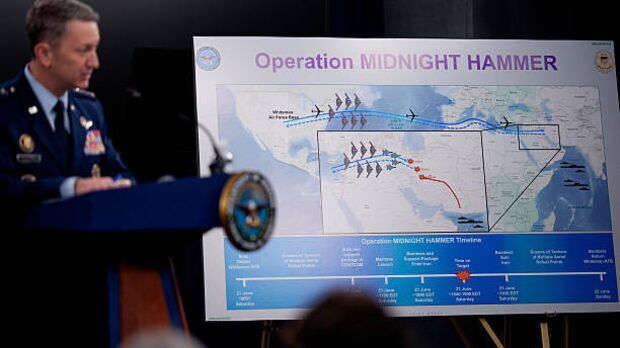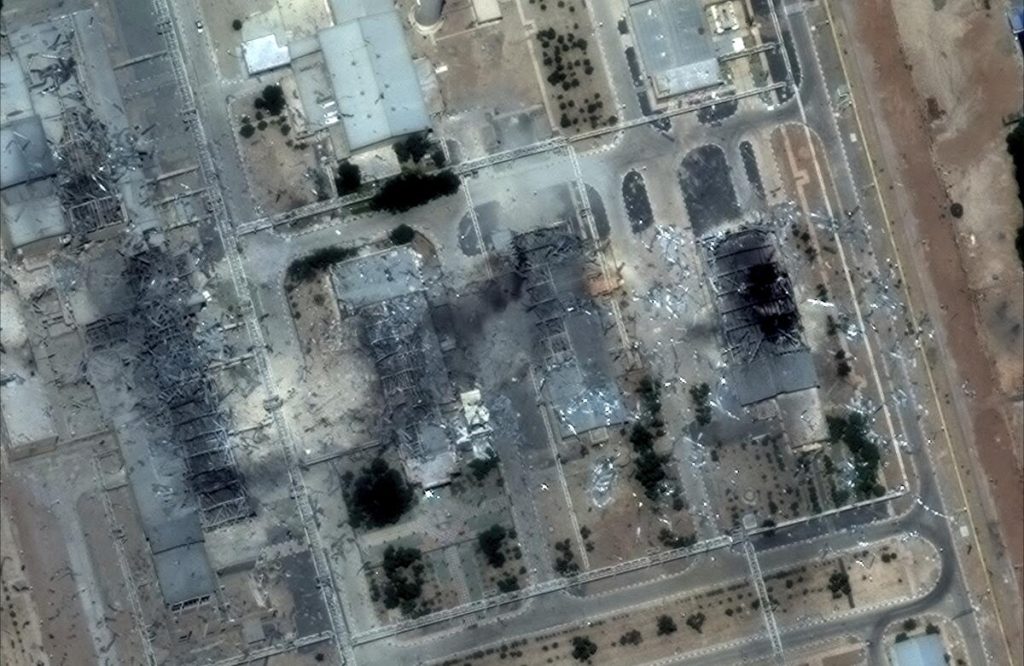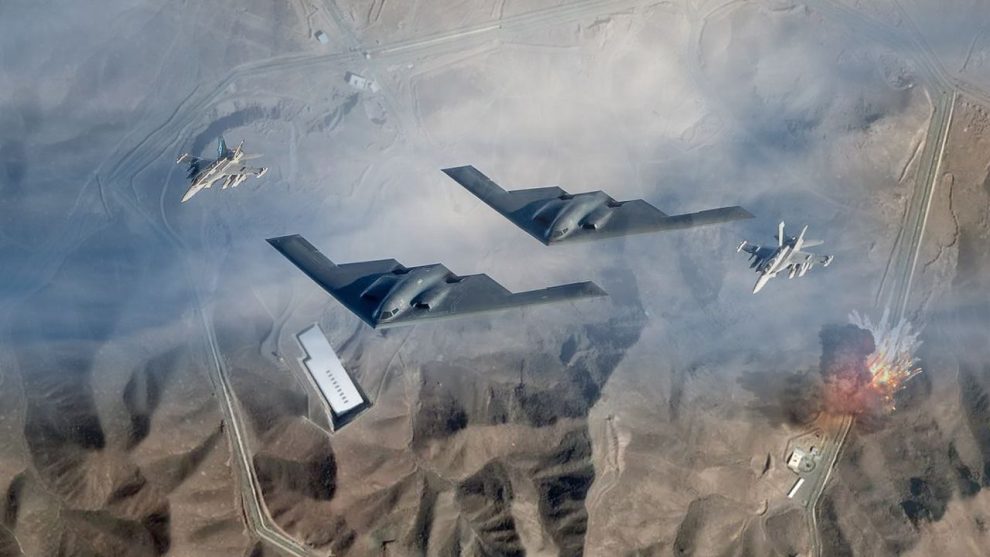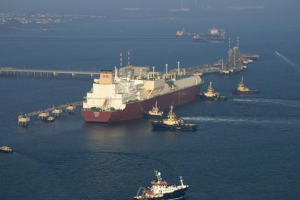Tensions at breaking point as Israel hits ‘heart of Tehran’ and Trump claims ‘bullseye’ on nuclear sites
THE UNITED STATES has insisted it “does not seek war with Iran” despite its role in a coordinated military campaign alongside Israel that has left Tehran reeling, hundreds reportedly dead, and fears of broader conflict rising rapidly across the Middle East.
The Pentagon’s statement follows an extraordinary 48 hours of airstrikes in which Israeli jets struck deep into the Iranian capital, targeting key Revolutionary Guard installations including the Basij headquarters and the outer wall of the notorious Evin Prison—used to hold political prisoners and regime opponents.
US bombers, operating under “Operation Midnight Hammer,” deployed bunker-busting munitions on nuclear sites in Fordow, Isfahan, and Natanz, with President Donald Trump declaring “obliteration” had been achieved. Satellite imagery appears to show extensive underground damage.

Israel declares war on Tehran’s power base
Israeli Defence Minister Israel Katz announced that “the heart of Tehran” had been hit with “unprecedented force”, vowing continued strikes until Iran ceases its aggression. “For every shot fired at the Israeli home front, the Iranian dictator will be punished,” he said.
Dozens of missiles have since been fired from Iran into Israel, triggering the largest sustained barrage since hostilities began. Missiles struck residential areas in Tel Aviv and Jerusalem, with sirens and “thuds” echoing across both cities.

Meanwhile, Iran’s state media claims hundreds of elite Islamic Revolutionary Guard Corps (IRGC) members have been killed in the Israeli strikes. The regime has promised a “decisive response” and vowed to turn US bases across the Middle East into “coffin factories,” warning of potential retaliation against up to 50,000 US personnel.
Trump proclaims ‘bullseye’ as Russia condemns strikes
President Trump took to social media platform Truth Social to celebrate the operation, claiming that “monumental damage” had been inflicted. “Bullseye!!!” he wrote, sharing satellite imagery purportedly showing destruction deep within the mountains surrounding the Fordow nuclear plant.

But the strikes have drawn sharp condemnation from international actors. Russian President Vladimir Putin called the US action “unprovoked aggression” and vowed to support Iran. He met with Iranian Foreign Minister Abbas Araghchi today, receiving a letter from Supreme Leader Ayatollah Khamenei believed to request increased Russian backing.
Putin told reporters that Russia is “assisting the Iranian people,” although what form that help will take remains unclear.
UK distances itself, but tensions remain high
Britain has been quick to distance itself from the US-led strikes. Foreign Secretary David Lammy stressed that the UK was not involved, stating, “It would be a catastrophic mistake for Iran to retaliate further. We urge calm and diplomacy.”
However, British military bases across the Gulf have been placed on the highest alert. Defence Secretary John Healey confirmed that UK personnel were braced for possible drone or missile strikes. Homeland Security officials in the US have also raised the national terror threat level, citing risks of sleeper cell activation and cyberattacks.
Oil prices surge, sleeper cells threatened, nuclear fears rise

The wider consequences are already being felt. Brent crude prices spiked above $80 a barrel for the first time in months, sparking warnings of rising inflation and fuel prices in the UK. Meanwhile, Iran has been warned that closing the Strait of Hormuz—a key oil transit route—would be “economic suicide,” though it has not ruled out the move.
In Iran, calls for retaliation are intensifying. “Now everyone is questioning why the nuclear bomb is not being produced,” one Iranian journalist said. State media has highlighted possible “sleeper cell” activation across Europe and America, including potential terror threats.
Ayatollah Khamenei, believed to be in hiding, has named three clerics as potential successors should he be assassinated, amid reports he has shut off all electronic communication to avoid detection.
What’s next?
Despite US claims that war is not the objective, experts fear the region may already be in the early stages of open conflict. The International Atomic Energy Agency has warned that Iran’s nuclear ambitions are not fully halted, and Israeli Prime Minister Benjamin Netanyahu has claimed his government has “interesting intel” about the location of remaining enriched uranium.
As retaliatory missile strikes continue and diplomatic efforts falter, the question now is not whether war is being sought—but whether it can still be avoided.













